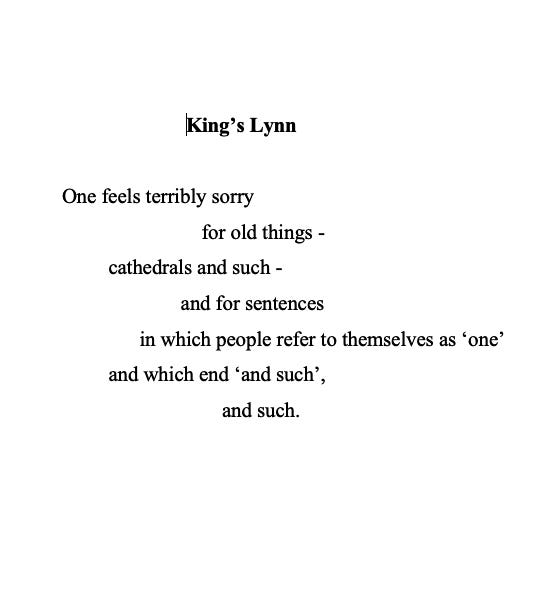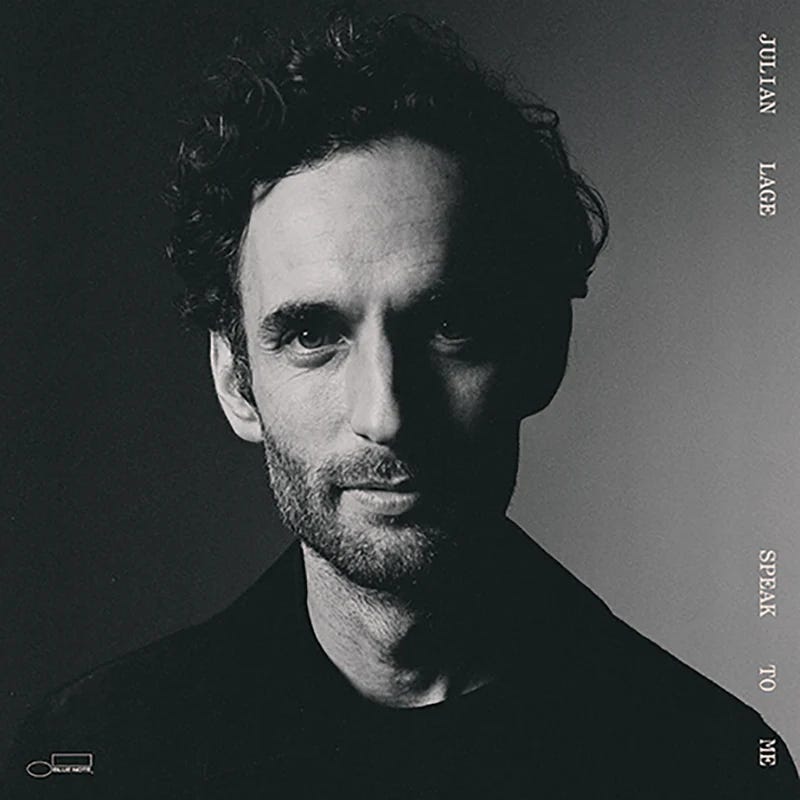Do you know who Julian Lage is?
I saw him play at the Cadogan Hall last week —
It was great. And I’m using that term strictly.
He’s probably the best guitarist in the world. Technically, in terms of touch and control, and in terms of digital inventiveness.
And certainly Lage is among the most thoughtful musicians — and teachers — you could encounter.
Much of what he says about playing guitar can be applied to other artforms — and I apply it to writing.
He says useful things about the necessity of achieving a relaxed disposition towards one’s instrument and one’s really bad ideas. He is amazing on the subject of practice.
When I hear him playing, I hear that thoughtfulness coming through. But I also hear a musician who well knows the limits of technique.
Lage has been a virtuoso since his teens, so he no longer is all that impressed by himself and his fancy stuff.
However, and this is where he might start putting people off, he is not shy of showing his delight when he happens upon something on the fretboard that works, that is interesting, that cuts through.
Sometimes this smile, or this grunt of pleasure, can come across as smug.
Might this be a case of Every man likes the smell of his own farts?
No, I don’t think it is. I prefer to see the grinning as childlike pleasure in continually discovering the new stuff this odd and beautiful instrument can still come out with, and the grunting is like Glenn Gould or Pablo Casal’s joyful self-accompaniment. Like them, Lage can’t help but occasionally ejaculate.
But what is going to put most people off Lage’s music is quite simply the sound of the sound of jazz.
Those chords which seem to perpetually delay getting anywhere tonally solid, or anywhere that means anything. That virtuosity which speaks mostly to other virtuosi. That flickering through a myriad of ghostly idioms, from ragtime to blues to bebop to modal and on. That noodling and vamping and swinging which says This is new jazz that’s still like old jazz and, to many people, says no more than Turn me over or switch me off.
Jazz is no longer a popular popular music. It is niche. And perhaps virtuosity in a vacuum is a reason for this.
There’s a great video of the venerated jazz teacher Barry Harris insisting that jazz lost it when it ceased to be dance music.
When we went to hear Charlie Parker, we went to a dance hall. When we went to hear one of the big bands, we went to a dance hall… You see, jazz musicians been gettin’ away with murder — they ain’t got nobody dancin’ to the music, they just do what they wanna do. And you couldn’t dance to it if you wanted to.
I’m not going to go over this argument, which which I mostly agree — although I think there’s a much bigger question of societies not holding together at all if they can’t come together to dance, and if they haven’t got places and times to do so. (Not just wedding receptions.)
There is a sound of the sound of jazz, and there’s equally a sound of the sound of improvised music that is perpetually trying to get away from being jazz or any other genre, and so perpetually sounding like the clatter and hush and screech of predictable escape.
What Julian Lage represents to me, in sound, is a way of perceiving how some people hear literary fiction. (Fiction in which the language itself is a major part of the pleasure, and there is an attempt at innovation within the use of language. Fiction which attempts a new view of individual human consciousness, or at least acknowledges there might be a more subtle take than heroism and villainy. No definition of literary fiction except as broadly non-specific-genre writing is likely to be satisfying.) The literariness of literary writing gets in the way. The expressive idiom itself has become repulsive and therefore non-communicative.
Last week I posted on Instagram a poem I’ve had around a while —
This is an example of self-consciously literary writing having a go at self-consciously literary writing. There’s an element of displayed-dismayed defeat. And I can imagine the experience of reading it — for someone who wants a poem to do poem things, but not to be a poem about poetry — the way it comes across as being very like attending a Julian Lage performance would be to a non-jazz fan.
Albeit this is a performance that lasts five seconds rather than an hour and a quarter.
Isn’t it smiling at itself ?— grooving on its own vibe? — laughing at its own joke?
Perhaps I’m just projecting my own self-disgust onto an entirely innocent musician — one whose innocence is hard won, and heartwarming, and increasingly heroic.




I love what you've got to say here. I was unfamiliar with this guitarist and you are right he is great. I love the quote about jazz belonging and dance halls and I think you touch on the thing that I hate about jazz that just masturbates on itself for pleasure and keeps going and going. I actually like your little poem because I've grown to an age where I love to refer to people as "one." The charm of old things, forms, styles is very real for me. I can say so much more about this post, perhaps a thread will get started.
I managed to miss him twice in Glasgow last week, but caught the trio in April earlier this year. I was wondering if there’s a literary analogy for this - the ‘live to video’ version of Fairbanks, used to promote the record is superior (obvs. subjective) to the version on the record itself. The unfixed promoting the fixed.